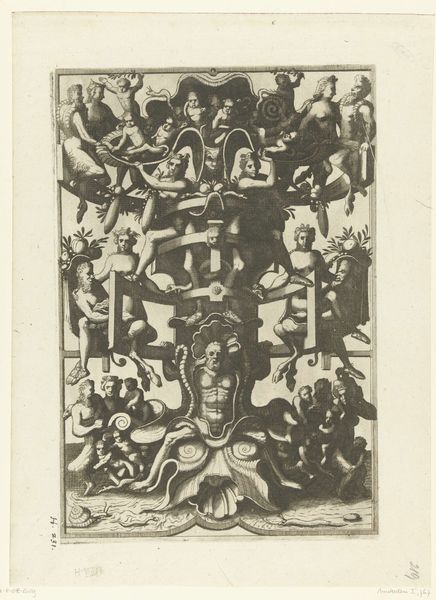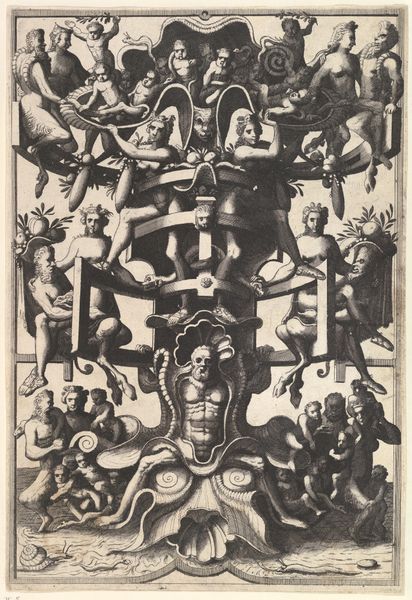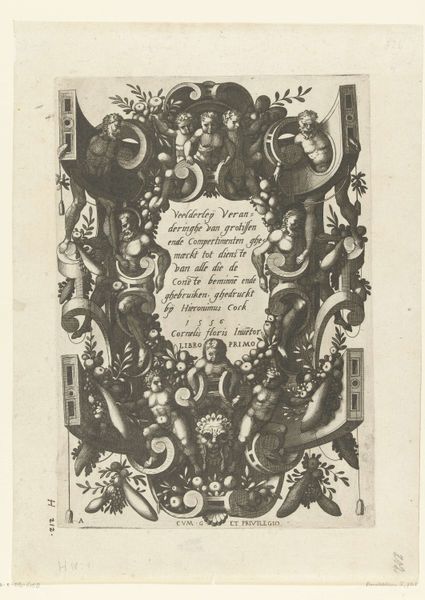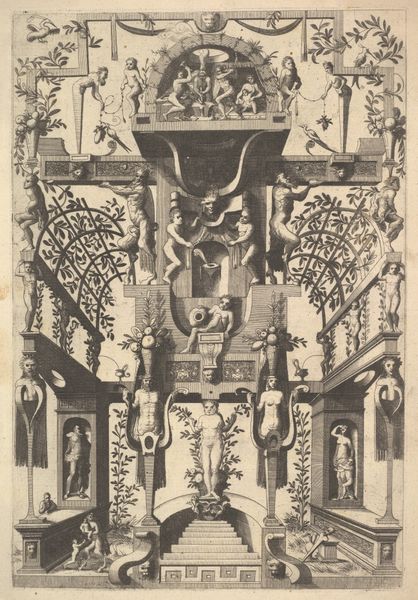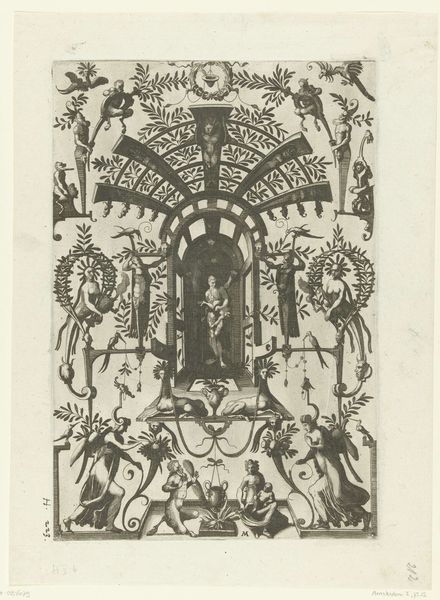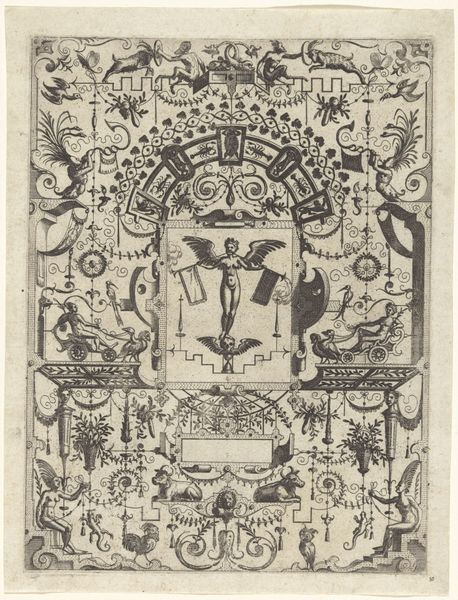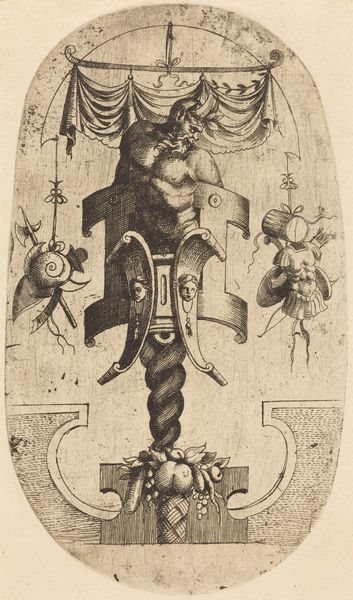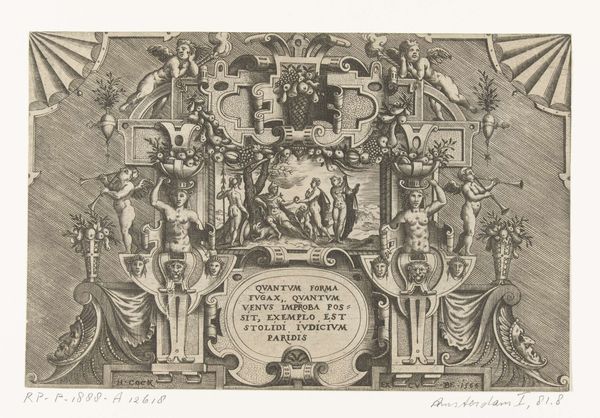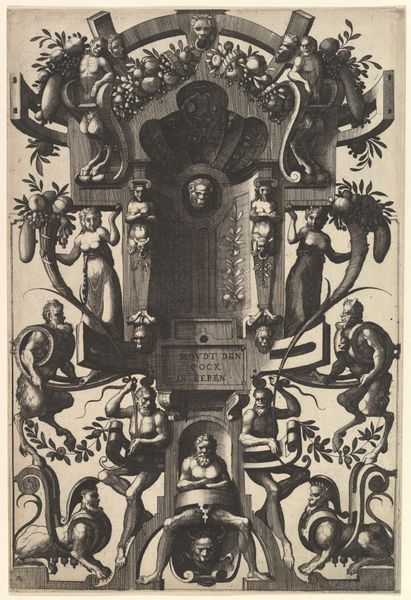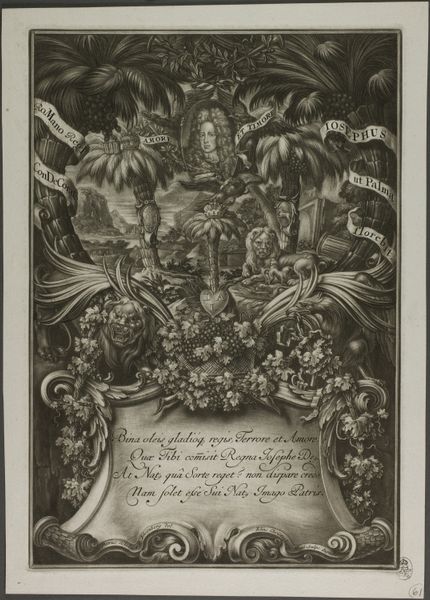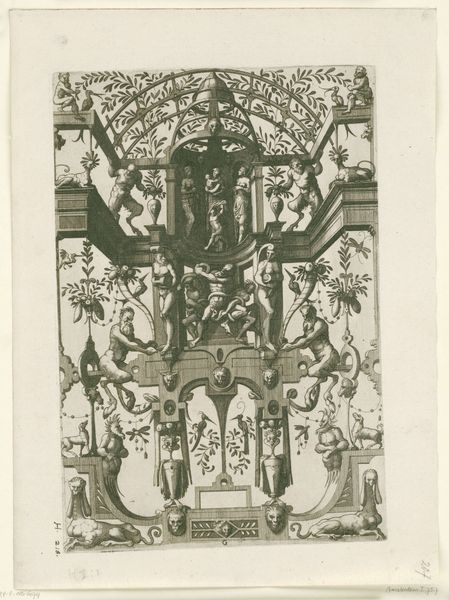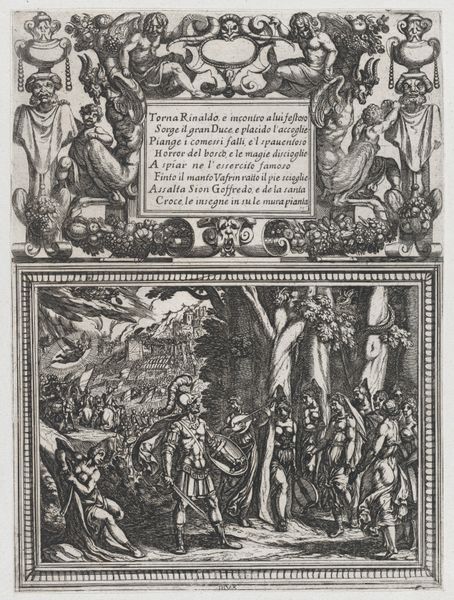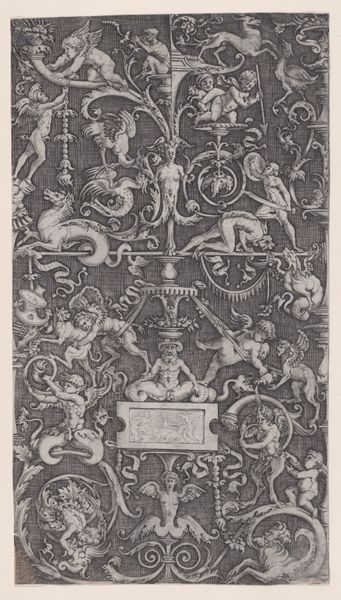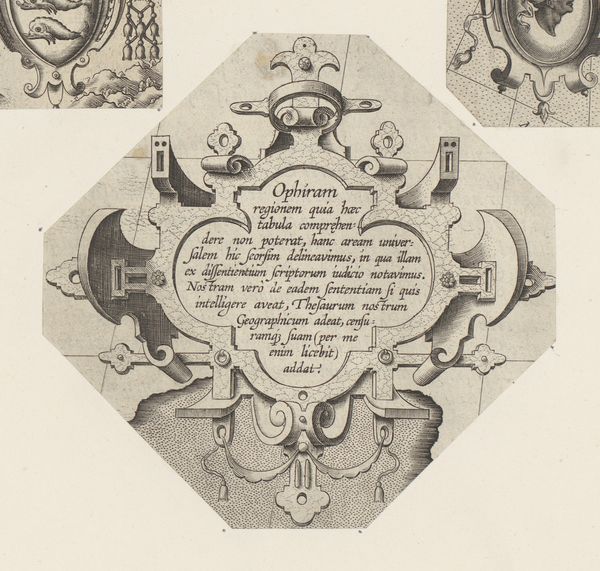
Cartouche from Veelderleij niewe inventien van antijckesche sepultueren diemen nou zeere ghebruijkende is met noch zeer fraeije grotissen en compertimenten zeer beqwame voer beeltsniders antijcksniders schilders en all constenaers...Libro Secundo 1557
0:00
0:00
drawing, print, engraving
#
drawing
#
allegory
#
pen drawing
# print
#
book
#
mannerism
#
figuration
#
11_renaissance
#
female-nude
#
history-painting
#
engraving
#
male-nude
Dimensions: Sheet: 12 x 8 3/16 in. (30.5 x 20.8 cm)
Copyright: Public Domain
This engraving by Johannes van Doetecum, made around 1600, presents a cartouche teeming with symbolic figures, ripe for contemplation. Look closely at the repeated motif of the grotesque masks and sculpted figures, echoes of ancient Roman sarcophagi. They speak to mortality and transformation. Note the Atlas figure at the base, reminiscent of classical statuary, burdened with a globe-like structure. It reminds me of the weight of existence. Similarly, winged cherubs cavort along the top, holding swags and laurel. The cherubs, which appear throughout Renaissance art, are symbols of both divine love and a connection to the classical world. Observe how the artist blends pagan and Christian elements; this is a visual language, a palimpsest where older beliefs intertwine with newer faiths. This cartouche is not merely an ornament; it is a profound statement about the enduring power of symbols to communicate across epochs, subtly influencing our subconscious.
Comments
No comments
Be the first to comment and join the conversation on the ultimate creative platform.
